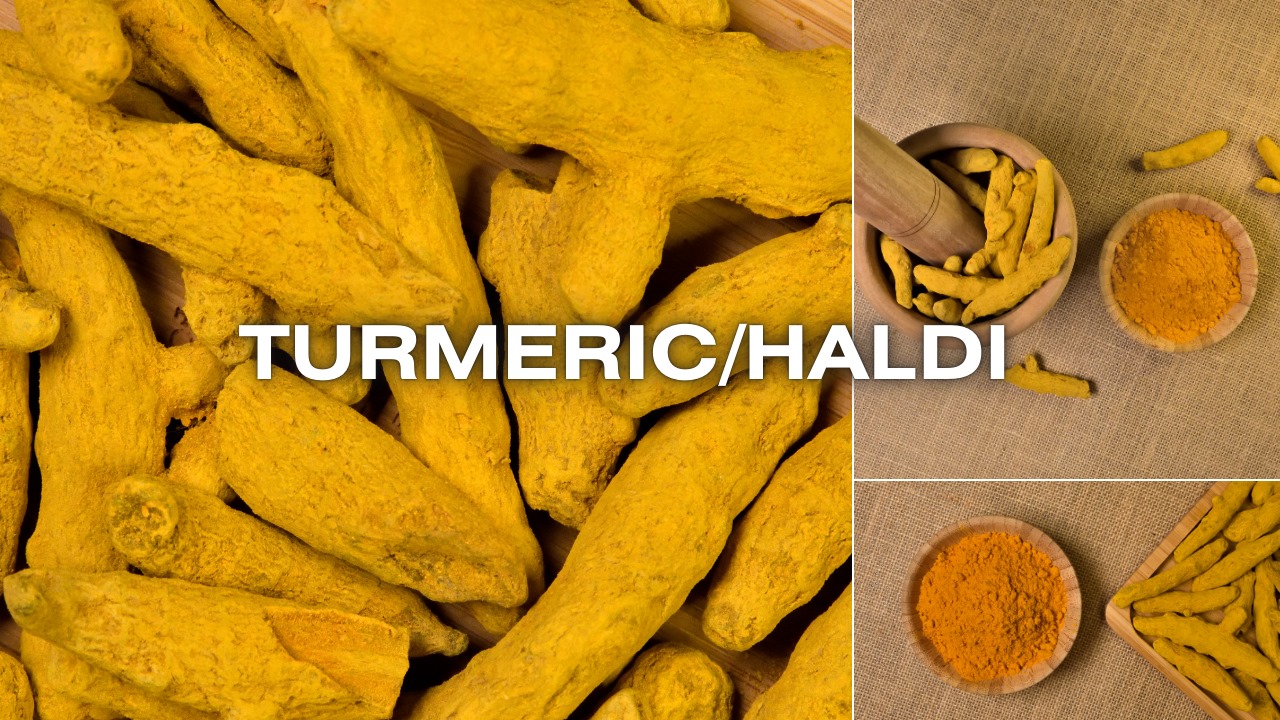Turmeric Is Key to Boosting Your Immune System
Introduction
Turmeric has been used for centuries in traditional medicine and culinary practices, especially in South Asian cultures, for its numerous health benefits. In recent years, this golden spice has captured global attention as a “superfood” due to its immune-boosting properties, which are now supported by a growing body of scientific research. But what makes turmeric so special for immune health?
In this article, we’ll dive deep into turmeric’s historical background, its nutritional value, and its scientifically-backed role in enhancing immune function. We’ll also explore how to incorporate turmeric into your diet effectively and touch on its other health benefits, making it a holistic addition to a well-rounded diet.
The Origins and Cultural Significance of Turmeric
Turmeric, scientifically known as Curcuma longa, has roots in ancient civilizations, dating back over 4,000 years. Here’s a closer look at the historical and cultural significance of turmeric:
1. Ancient Origins
- Turmeric is believed to have originated in Southeast Asia, particularly in India, where it was cultivated for both medicinal and culinary purposes.
- Historically used in Ayurvedic and Traditional Chinese Medicine, turmeric was valued for its therapeutic properties, including its ability to treat digestive disorders, skin conditions, and joint pain.
2. Symbolism in Tradition and Ritual
- In India, turmeric is considered a sacred spice, symbolizing prosperity, health, and purification. It is often used in religious rituals, weddings, and cultural ceremonies.
- The spice has been used traditionally in beauty and skincare rituals, including bridal applications for a glowing complexion.
3. Expansion Across the World
- As global trade routes expanded, turmeric traveled to other parts of Asia, Africa, and the Middle East, becoming a staple in regional diets and medicines.
- Today, turmeric is widely cultivated across tropical regions, with India being the largest producer and exporter globally.
This ancient spice’s journey from cultural icon to global superfood highlights its lasting relevance in health and wellness.
Nutritional Profile of Turmeric
Turmeric owes much of its health benefits to its unique nutritional composition, particularly the presence of curcumin, a bioactive compound with potent anti-inflammatory and antioxidant properties. Here’s an in-depth look at its nutritional makeup:
| Nutrient | Amount per 100g | Benefits for Health |
| Calories | 354 kcal | Energy source |
| Curcuminoids | ~3-5% | Anti-inflammatory, antioxidant |
| Vitamin C | 25 mg | Immune support, collagen formation |
| Vitamin B6 | 1.8 mg | Metabolism, red blood cell formation |
| Manganese | 7.8 mg | Antioxidant support, wound healing |
| Iron | 41 mg | Red blood cell production |
| Dietary Fiber | 22 g | Digestive Health |
1. Curcumin: The Star Component
- Curcumin is the primary active compound in turmeric, known for its anti-inflammatory, antioxidant, and antimicrobial effects. However, curcumin has low bioavailability on its own, meaning it isn’t readily absorbed by the body.
2. Synergy with Black Pepper
- To enhance curcumin absorption, black pepper (containing piperine) is often combined with turmeric, increasing curcumin’s bioavailability by up to 2000%.
3. Antioxidant and Mineral Content
- Turmeric is rich in antioxidants, including vitamins C and B6, as well as minerals like manganese and iron, which contribute to immune health and support cellular functions.
The combination of these nutrients makes turmeric a comprehensive health booster beyond just its immune-boosting properties.
Turmeric’s Role in Immune Health
One of the most compelling reasons for turmeric’s popularity as a superfood is its ability to support and strengthen the immune system. Here’s how it contributes to immune health:
1. Immunomodulatory Properties of Curcumin
- Immunomodulation refers to curcumin’s ability to regulate immune responses, balancing immune cell activity. This helps the body effectively combat pathogens without overreacting.
- Research shows that curcumin can modulate the activation of T-cells, B-cells, and macrophages, which are essential components of the immune response.
2. Anti-inflammatory Benefits
- Chronic inflammation can weaken the immune system and is linked to conditions such as autoimmune diseases and allergies. Turmeric’s anti-inflammatory properties help reduce inflammation at the cellular level, improving overall immunity.
- Studies have shown that curcumin can inhibit molecules like NF-kB, a protein complex that plays a key role in inflammatory responses, thereby promoting a healthier immune environment.
3. Antioxidant Defense Mechanism
- Oxidative stress damages cells and weakens immune defenses. Turmeric’s antioxidants neutralize free radicals and protect immune cells from oxidative damage.
- According to studies, the antioxidant power of curcumin is comparable to that of vitamin C and E, making it a potent free radical scavenger.
4. Enhanced White Blood Cell Activity
- Curcumin has been shown to enhance the efficiency of various white blood cells, including T-cells, B-cells, and natural killer cells, which are the body’s primary defense against infections.
- Enhanced white blood cell activity aids the body’s response to pathogens, ensuring quicker immune responses and recovery.
Scientific Studies on Turmeric and Immunity
Research has shown that turmeric, particularly its active component curcumin, has profound effects on immune function and can help reduce inflammation and enhance the body’s ability to fend off pathogens. In this section, we’ll explore some key scientific studies that validate turmeric’s role in immune health.
1. Overview of Research Supporting Turmeric’s Immune-Boosting Properties
Anti-Inflammatory Effects
- Study: A review published in Frontiers in Immunology (2017) analyzed over 120 studies on curcumin and found that it significantly inhibits inflammatory molecules like TNF-alpha, interleukins, and NF-kB, all of which play major roles in immune response and chronic inflammation.
- Findings: The review concluded that curcumin’s anti-inflammatory properties support the immune system by reducing chronic inflammation, which can otherwise lead to autoimmune and inflammatory diseases.
Antioxidant Power
- Study: According to a study in Phytotherapy Research (2016), curcumin acts as a potent antioxidant, neutralizing free radicals and reducing oxidative stress that can damage immune cells.
- Findings: The study found that curcumin enhances the body’s natural antioxidant defenses, including enzymes like superoxide dismutase (SOD) and catalase, contributing to stronger immune protection.
Modulation of Immune Cells
- Study: Research from Journal of Clinical Immunology (2014) found that curcumin modulates immune cells, particularly T-cells, B-cells, macrophages, and dendritic cells.
- Findings: These findings suggest curcumin’s ability to support immune cell function, enhance the production of white blood cells, and improve overall immune resilience.
2. Case Studies and Clinical Trials on Turmeric’s Effects on Immune Health
| Study | Population | Dosage of Curcumin | Duration | Key Findings |
| Clinical trial on arthritis patients | 150 adults with rheumatoid arthritis | 500 mg/day | 8 weeks | Significant reduction in inflammation and pain; reduced C-reactive protein (CRP) levels, a marker of inflammation. |
| Immunity in cancer patients | 100 cancer patients | 1000 mg/day | 6 months | Enhanced white blood cell counts; patients showed improved immune response and resilience to infections. |
| General immune health | 200 healthy adults | 250 mg/day | 3 months | Enhanced antioxidant levels, reduced markers of oxidative stress, and improved immune biomarkers. |
3. Comparison with Other Immune-Boosting Herbs
- Ginger: Turmeric and ginger both contain powerful anti-inflammatory and antioxidant compounds, but turmeric’s curcumin is considered more potent in immune support.
- Echinacea: While echinacea is widely used for preventing and treating colds, turmeric’s broad spectrum of effects (antioxidant, anti-inflammatory, immunomodulatory) makes it a more comprehensive immune booster.
Practical Ways to Incorporate Turmeric for Immune Health
Turmeric can be incorporated into your daily routine in various ways to support immune health. Below are some practical and effective methods.
1. Daily Dosage Guidelines
- The recommended daily dose of curcumin is typically 500–2000 mg per day for general health. However, always check with a healthcare provider before starting supplementation, as needs can vary.
- Raw turmeric root: Approximately 1.5-3 grams per day (about 1-1.5 inches of fresh root).
- Turmeric powder: 400-600 mg of standardized curcumin powder, 2-3 times daily.
2. Easy Recipes and Uses
- Golden Milk: A traditional Ayurvedic drink made by mixing turmeric powder, black pepper, and milk. Optionally, add ginger and honey for flavor. This blend helps with curcumin absorption due to the presence of piperine in black pepper.
- Turmeric Tea: Boil turmeric with ginger in water, and add honey and lemon for a soothing immune-boosting tea.
- Smoothies: Add 1/2 teaspoon of turmeric powder to morning smoothies for a convenient way to boost immunity.
- Cooking: Turmeric can be used in soups, stews, and curries. Just ensure you’re adding black pepper to enhance absorption.
3. Choosing the Right Supplements
- Look for curcumin supplements with piperine or black pepper extract to improve bioavailability.
- Dosage: For therapeutic benefits, choose a supplement with 500-1000 mg of curcumin per dose.
- Formulations: Curcumin supplements often come in capsules, tablets, or liquid extracts. Liposomal curcumin formulations also enhance absorption.
4. Precautions and Side Effects
- Potential Interactions: Curcumin can interact with blood-thinning medications (e.g., warfarin) and antiplatelet drugs, so consult a doctor before starting a high dosage.
- Digestive Discomfort: Some people experience digestive discomfort, nausea, or mild gastrointestinal symptoms. Start with a lower dose if you are sensitive.
Turmeric Beyond Immunity – Additional Health Benefits
Turmeric’s benefits extend far beyond just immune support. Below, we explore the additional health advantages of this powerful spice.
1. Anti-Cancer Properties
- Research Findings: Studies indicate that curcumin can inhibit the growth of various cancer cells by blocking pathways associated with cancer cell growth, such as the NF-kB pathway.
- Clinical Studies: Preliminary human trials have shown curcumin’s potential to enhance the efficacy of chemotherapy and radiation while protecting healthy cells.
2. Cardiovascular Health
- Heart Disease Prevention: Curcumin helps lower LDL cholesterol, reduce blood pressure, and prevent blood clot formation.
- Improving Endothelial Function: The endothelium, the inner lining of blood vessels, plays a significant role in heart health. Curcumin improves endothelial function, lowering the risk of heart-related issues.
3. Mental Health Benefits
- Antidepressant Effects: Curcumin increases brain-derived neurotrophic factor (BDNF), which supports brain health and may reduce symptoms of depression.
- Cognitive Support: Curcumin’s antioxidant properties help protect against cognitive decline, support memory, and reduce the risk of Alzheimer’s disease.
4. Digestive Health
- Digestive Aid: Curcumin stimulates bile production, helping improve digestion and reduce symptoms of indigestion and bloating.
- Gut Health: The anti-inflammatory effects of curcumin may help manage irritable bowel syndrome (IBS) and inflammatory bowel disease (IBD).
Conclusion
Turmeric has emerged as one of the most powerful superfoods with a wide range of benefits, from supporting immune function to enhancing heart health, mental well-being, and more. Backed by centuries of traditional use and an increasing amount of scientific evidence, turmeric is an accessible and versatile addition to any diet.
Incorporating turmeric into daily life, whether through culinary practices or supplementation, can provide lasting health benefits. However, it’s essential to use it correctly—consider pairing it with black pepper for optimal absorption and consulting a healthcare professional for proper dosage.
FAQ: Turmeric and Immune Health
1. What is the best way to consume turmeric for immune benefits?
- The most effective way to consume turmeric is with a small amount of black pepper, which enhances curcumin absorption by up to 2000%. You can add turmeric to food, make a turmeric latte (golden milk), or take it in supplement form. Taking it with healthy fats, like in milk or a smoothie, also improves absorption.
2. How much turmeric should I take daily for immune support?
- For general health, about 500-1000 mg of curcumin per day is often recommended. This is equivalent to about 1/2 teaspoon of turmeric powder or 1-1.5 inches of fresh turmeric root. However, it’s best to consult a healthcare provider for personalized guidance, especially if using it for specific health conditions.
3. Can I take turmeric supplements daily?
- Yes, turmeric supplements can be taken daily. Just ensure the supplement is of high quality and contains piperine or black pepper extract to aid absorption. Starting with a lower dose to gauge your body’s response is recommended, especially if you’re new to turmeric supplements.
4. Are there any side effects to consuming turmeric?
- Generally, turmeric is safe in moderate amounts. However, some people may experience mild digestive discomfort, nausea, or bloating with high doses. Turmeric may also interact with medications, such as blood thinners, so it’s best to consult a healthcare professional if you’re on medication or planning to take high doses.
5. Can turmeric help fight off colds and flu?
- Turmeric’s immune-boosting and anti-inflammatory properties can help support the body’s defense against infections. While it doesn’t cure colds or flu, it may strengthen your immune system, potentially reducing the severity or duration of symptoms.
6. How long does it take for turmeric to show effects?
- The effects of turmeric can vary. For general wellness, benefits like reduced inflammation or improved digestion may be noticed within a few weeks. For specific conditions, such as joint health or chronic inflammation, it may take longer—several weeks to a few months.
7. Can turmeric be used as a natural remedy for inflammation?
- Yes, turmeric is widely recognized for its anti-inflammatory properties, making it a popular natural remedy for inflammatory conditions such as arthritis. Studies suggest that turmeric may help reduce pain and inflammation, especially when taken consistently.
8. Can I use turmeric during pregnancy?
- While turmeric is generally safe when used in food, high doses in supplement form are not recommended during pregnancy. If you’re pregnant, consult your doctor before adding turmeric supplements to your diet.
9. Does cooking turmeric reduce its benefits?
- Cooking turmeric slightly reduces curcumin levels, but it still retains significant health benefits. Combining it with black pepper during cooking or adding it to dishes near the end of cooking can help preserve its potency.
10. Is fresh turmeric better than powdered turmeric?
- Fresh turmeric has a more vibrant flavor and contains more bioavailable compounds, but both fresh and powdered forms provide immune benefits. Choose fresh if you have access to it, but high-quality turmeric powder is still effective for health.




